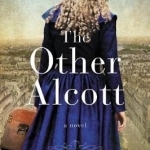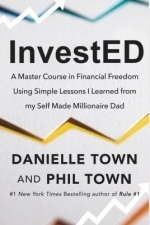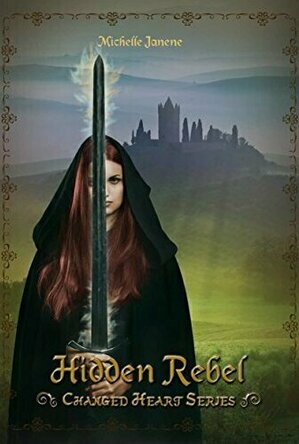
DishyMix: Success Secrets from Famous Media and Internet Business Executives
Podcast
Crave authority? Visibility? Want to attain a power position? Want to be a leader with your own...

The Future is Not What it Used to be: Climate Change and Energy Scarcity
Book
The future is not what it used to be because we can no longer rely on the comforting assumption that...
Environmental Posthumanism in Literature and Science: Stages of Transmutation
Book
Literature is often regarded as a window on the human soul. However, in an era of turbulent...

The Other Alcott: A Novel
Book
Elise Hooper's debut novel conjures the fascinating, untold story of May Alcott-Louisa's youngest...

Can I Speak to Someone in Charge?
Book
'JUST IMAGINE IF WE, THE NORMAL GIRLS, STOOD UNITED AS AN ENORMOUS, HYSTERICAL AND PROUD ARMY. WE...
TravelersWife4Life (31 KP) rated Hidden Rebel (Changed Heart Series Book 3) in Books
Feb 23, 2021
This book was so good, it was like the secret fantasy we all wish we could play brought to life. This book is the third in her Changed hearts series, however, it can be read as a stand-alone.
Michelle Janene’s main character (Lady Aria) was fierce, independent, and the most amazing ninja/sword warrior ever! She also had great faith and because of that God blessed her. While her other main characters were well developed, they had lessons to learn and were always by Lady Arias’ side ready to help when things went awry. I really liked the overall character development, some of them didn’t have the best reactions to events though. I truly did like them anyway. <br/> This plot was definitely one right out of a medieval fantasy. Castles, knights, horses, and sword fights… totally a truly medieval fantasy come to life. The plot moved at a great pace, keeping me interested and wanting to know what would happen next. The was one thing I didn’t like about the plot; however, I will not tell you about it as it is a spoiler.
Overall this was a great story that I could totally imagine myself in. Michelle Janene wrote a great book that I loved reading. I give this book 4 out of 5 stars for the great Lady Aria, the amazing description and attention to detail given in the sword training dialogues, and for just the hint of romance given with the happily ever after ending. I truly enjoyed this book and will go back and read the others in the series
*I did receive this book in return for my honest feedback. The thoughts and opinions expressed within are my own.

Learn and play French +
Education and Games
App
This engaging game of skill is a mobile tutor for self-study of vocabulary and phonetics on the...
BookwormMama14 (18 KP) rated A Noble Masquerade (Hawthorne House, #1) in Books
Jan 2, 2019
"A lady never posted letters to an unrelated male. But the very writing of his name made her feel dangerous."
Lady Miranda Hawthorne has been raised to be the epitome of poise and grace, but everything inside of her screams to rebel. She pours her heart out on paper, in letters she never sends, to her brother's childhood friend, the Duke of Marshington. She is approaching her fourth London season when Marlow, the handsome new valet to Lady Miranda's brother, accidentally mails one of these letters. She is mortified, until she receives a reply. Conflicted with her growing attraction for two men, her life is quickly changing in ways she never thought possible. She soon realises however, that there is more at stake than her heart. Miranda has had to hide behind the mask she have been expected to wear for so long. Hiding her true personality and identity. But the time has come for her to become the person she was created to be.
"'A Lady never sits on the floor.' A lady probably wasn't supposed to crawl on her belly through the dirt either."
A Noble Masquerade is a fabulous story from beginning to end! Kristi Ann Hunter has done a marvelous job with her debut novel! I was completely captivated by the intrigue and espionage. I was surprised more than once when the story line went in a different direction than I anticipated. The faith was natural and the romance genuine and clean. Kidnappings, traitors, witty humour and masquerades will keep you turning the pages of this remarkable story. This is a book that I will enjoy reading over and over again. I can not wait for Mrs. Hunter's next book!
I received a free advanced reading copy of A Noble Masquerade from Bethany House Publishers through Library Thing in exchange for my honest review.

A Taste of Love
Book
'I have starved in some of the most beautiful places in the world ...' The Irish Times food writer...

Invested: How Warren Buffett and Charlie Munger Taught Me to Master My Mind, My Emotions, and My Money
Book
In this essential handbook--a blend of Rich Dad, Poor Dad and The Happiness Project--the co-host of...
business and finance

